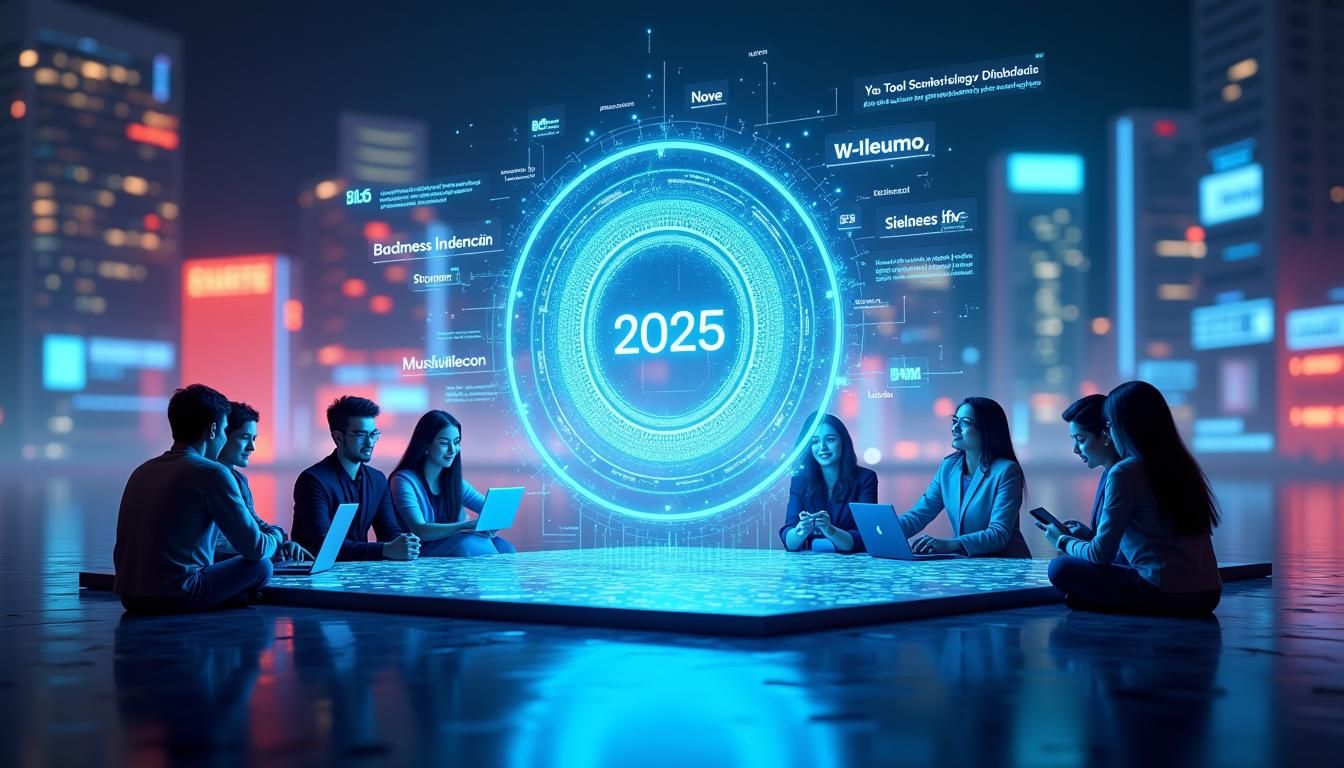
As we navigate the rapidly evolving digital landscape of 2025, bloggers and content creators face both unprecedented opportunities and challenges. At Aleck.ai, we’re committed to helping you stay ahead of the curve by exploring the latest advancements in AI technology and their transformative impact on blogging. Let’s dive into the key trends, strategies, and innovations shaping the industry this year.
Artificial Intelligence has become an indispensable tool for bloggers. Platforms like Jasper and Copy.ai streamline content generation by drafting posts, suggesting headlines, and optimizing SEO. However, the human touch remains vital—successful bloggers are blending AI efficiency with authentic storytelling to maintain a personal connection with audiences.
Static blog posts are evolving into dynamic experiences. Quizzes, polls, and interactive infographics are now standard tools for boosting engagement. For example, travel bloggers might embed destination quizzes, while tech blogs use interactive diagrams to explain complex concepts. These features not only captivate readers but also improve SEO through increased dwell time.
Video blogging continues to dominate, with platforms like TikTok, Instagram Reels, and YouTube driving demand for multimedia content. Short-form videos are ideal for quick tutorials, while long-form videos complement in-depth articles. Embedding videos directly into blog posts creates a richer, multi-sensory experience.
With 55% of households now using smart speakers, optimizing for voice search is non-negotiable. Bloggers are adopting conversational language and long-tail keywords (e.g., “How do I fix a leaky faucet?”) to align with natural speech patterns. Structured data markup and FAQ sections further enhance visibility in voice search results.
Readers increasingly prioritize transparency and sustainability. Bloggers are addressing eco-friendly living, ethical AI use, and corporate accountability. Many are also adopting green hosting solutions and reducing their carbon footprint to align with audience values.
Generalist blogs are giving way to hyper-specialized niches. Whether it’s “vegan keto recipes” or “AI-driven cybersecurity,” targeted content attracts dedicated audiences. Private forums, newsletters, and social media groups foster loyalty, turning readers into active community members.
Beyond ads and sponsorships, membership models are thriving. Platforms like Patreon and Substack enable bloggers to offer exclusive content—think behind-the-scenes insights or personalized coaching—for subscription fees. Affiliate marketing remains strong but is now highly tailored to niche audiences.
Google’s 2025 algorithms heavily favor originality and depth. Invest in well-researched, actionable content that solves specific problems. For example, a post titled “10 AI Tools to Automate Social Media in 2025” should include firsthand testing, pros/cons, and real-world use cases.
Tools like SurferSEO and SEMrush analyze millions of data points to recommend optimal keywords, content length, and internal linking structures. Use these insights to craft posts that align with search intent while maintaining a natural flow.
Refresh older posts with new data, videos, or interactive elements. A 2023 article on “Remote Work Tips” can evolve into “2025’s AI-Powered Remote Work Toolkit,” complete with updated tools and case studies.
Platforms like Twitter and Instagram are gateways to your blog. Share bite-sized tips, infographics, or video snippets that tease longer posts. For instance, a 60-second LinkedIn video summarizing “5 Key Takeaways” from your latest article can drive traffic effectively.
Partner with niche influencers for co-branded webinars or guest posts. Meanwhile, AI chatbots can engage visitors in real time, answering FAQs and recommending related content.
AI algorithms analyze user behavior to deliver customized content experiences. A first-time visitor might see a beginner’s guide to machine learning, while a returning reader gets advanced tutorials. Dynamic layouts adjust headlines and images based on demographics, boosting conversion rates by up to 35%.
While AI streamlines workflows, concerns about originality and bias persist. Aleck.ai advocates for transparent disclosure when posts are AI-generated and rigorous fact-checking to maintain credibility.
Roles are evolving rather than disappearing. Content strategists now focus on curating AI outputs, while editors ensure brand voice consistency. The demand for AI ethicists and prompt engineers highlights the industry’s growing complexity.
Google’s emphasis on Experience, Expertise, Authority, and Trustworthiness (E-E-A-T) means bloggers must showcase credentials. For example, a medical blog should highlight the author’s healthcare background and cite peer-reviewed studies.
HowTo schema for tutorials). Even global blogs benefit from local optimization. Include region-specific keywords (e.g., “AI Startups in Berlin”) and leverage Google Business Profiles for geo-targeted content.
The future of blogging is a blend of cutting-edge technology and timeless principles: authenticity, adaptability, and audience-centricity. At Aleck.ai, we believe embracing AI tools while preserving human creativity is the key to success. Whether you’re optimizing for voice search, building a niche community, or experimenting with interactive content, staying informed and agile will ensure your blog remains relevant—and revolutionary—in 2025 and beyond.
Ready to transform your content strategy? Explore Aleck.ai’s latest resources on AI-driven blogging tools and join the conversation shaping the future of digital storytelling.